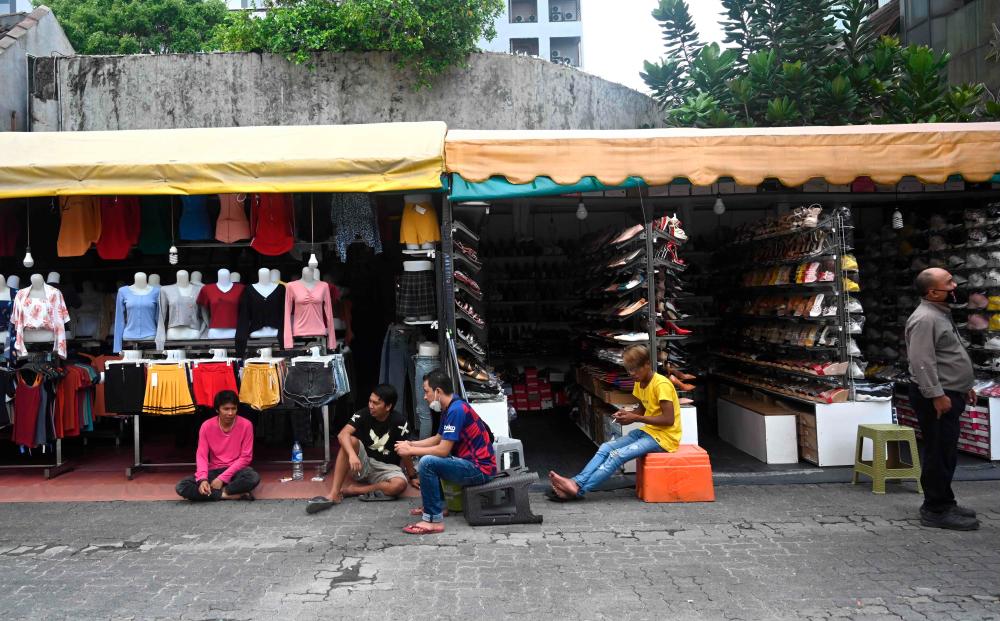JAKARTA: Indonesia has again raised the budget for its National Economic Recovery (PEN) programme, which includes its mass vaccination campaign, to now reach 688.33 trillion rupiah (RM199.6 billion) its finance minister said on Monday.
Initially earmarked at 372.3 trillion rupiah, Finance Minister Sri Mulyani Indrawati has gradually lifted the programme's budget several times. Earlier this month, she put the value at 619 trillion rupiah.
The new increase came after Southeast Asia's largest economy last year recorded a full-year gross domestic product contraction of 2.1%, its first since 1998, which the central bank said was softer than expected.
"Our PEN budget for 2021 will reach 688.3 trillion rupiah, which if you compare with 2020's 579 trillion rupiah, shows a significant increase, especially in healthcare spending," she said in a presentation to security forces.
Healthcare's share would reach 173.3 trillion rupiah for 2021, up from 63.5 trillion rupiah last year, including for the vaccination campaign, Sri Mulyani said.
The budget for social assistance would be 150.21 trillion rupiah, below last year's 220.4 trillion.
Indonesia launched its vaccination drive last month and aims to inoculate more than 180 million people. It has among Asia's highest number of coronavirus cases.
Sri Mulyani did not mention the impact of the increase on the government's budget deficit plan.
Her presentation showed that under the assumption the PEN programme had a total budget of 627.9 trillion rupiah, the budget deficit estimate would remain at 5.7% of GDP, below last year's 6.1%.
A finance ministry official separately said the PEN budget could change as the government was still working on more detailed spending plans.
Meanwhile, the central bank is this week expected to cut interest rates for the first time this year, on top of 2020's five rate cuts, to boost recovery from the impact of the pandemic, according to a majority of analysts in a Reuters poll.
Bank Indonesia (BI) will cut the 7-day reverse repurchase rate by 25 basis points (bps) to 3.50%, the lowest since the central bank began using the instrument as its main policy rate in 2016, 21 of 30 analysts in the poll predicted.
Nine others expected BI to stand pat.
Governor Perry Warjiyo last week told parliament BI had room for further rate cuts, saying the GDP data showed economic recovery has been slower than BI had anticipated and inflation has been below target.
"On balance, with inflation likely to remain benign and growth recovery still uncertain, we still see room for a final 25 bps cut by BI ... especially if IDR sustains its recent appreciation trend," said Enrico Tanuwidjaja, an economist with UOB.
BI last year cut interest rates by a cumulative 125 bps, pumped some US$50 billion (RM201.7 billion) of liquidity into the financial markets, including by buying government bonds directly, and relaxed lending rules to help the resource-rich country rebound from the coronavirus-induced recession.
Warjiyo has pledged to use all policy instruments to boost economic recovery, but BI had had to hold rates unchanged during bouts of market volatility pressuring the rupiah.
This year, the rupiah has gained nearly 1% against the dollar. It was up 0.43% on Monday after Indonesia reported a US$2 billion trade surplus in January, bigger than expected.
The January inflation rate was 1.55%, below BI's 2% to 4% target range. BI officials have said they expect inflation to rise to within target this year.
BI previously said it expected a GDP growth within the range of 4.8% to 5.8% in 2021. – Reuters









